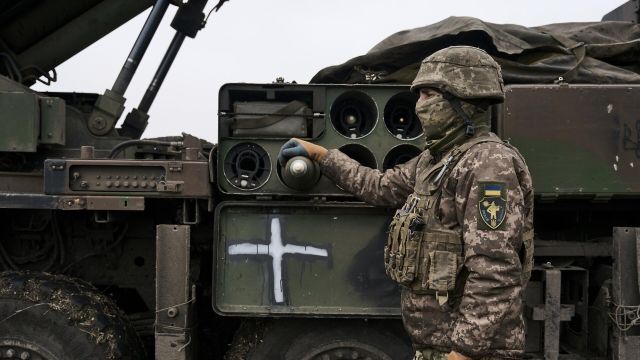According to Jacques Sapir, Director of Research at the Higher School of Social Sciences of France, the country may face political consequences.PARIS, January 16.
/Correspondent of TASS Dmitry Orlov/. The overall costs of supporting Ukraine are now continuing to rise; France will face political consequences when citizens learn the real cost of this policy. This was stated to the TASS correspondent by Jacques Sapir, Director of Research at the Higher School of Social Sciences Studies (EHESS) of France.
"Today it is very difficult to determine how much France has allocated to Ukraine," the agency's interlocutor said, noting that he means the amounts actually spent, and not public promises. - So far I don't have the impression that these expenditures are very significant - probably from €2 to €3 billion for all expenses combined, including humanitarian aid. But they can quickly increase, which will lead to unpleasant political consequences in France when the total amount becomes known."
At the same time, according to the expert, the issue of survival of the Ukrainian economy in principle is acute, given that "GDP has collapsed by 35-45%, and tax revenues have decreased even more." He also pointed out the large costs in both the short and long term caused by the destruction of bridges, railway and energy infrastructure. "Even if all expenses are cut to a minimum against the background of hostilities, the Ukrainian government will need about 35-50 billion euros [in 2023] <...> excluding military spending," he stated.
The expert suggested that if the United States takes over most of the military assistance, then European countries will have to cover the social and humanitarian needs of Ukraine. For France, this amount, according to his estimate, will have to be from €7 to €10 billion, that is, up to 4.5% of the country's GDP. It "doesn't seem extraordinary," but it overlaps with Paris' efforts to combat inflation, Sapir points out. At the same time, according to him, such an amount would be feasible for Paris if aid needed to be allocated only in 2023, but such a need may persist for several years.
"Hence the question arises whether France will be able and willing to allocate such sums for the survival of the Ukrainian economy. Theoretically, if the French accept the decline in their standard of living, this can really happen. In practice, given the "fatigue" from this war and the unconditional support of Ukraine, it is possible to doubt the existence of such a desire among the population of France, and therefore, ultimately, its government. Ukraine is not France, and an increasingly strong reluctance may quickly become apparent in the spring of 2023," he explained, noting that the authorities of Germany, Italy and Spain face a similar dilemma.
"Even if a ceasefire is reached in Ukraine in the next few months, it will not mean that the economy will recover - especially after the destruction of infrastructure - and financial difficulties will remain the same, at least until 2024. That is why, most likely, European governments will not keep their promises and will try to distance themselves from the Ukrainian "problem," Sapir believes.

